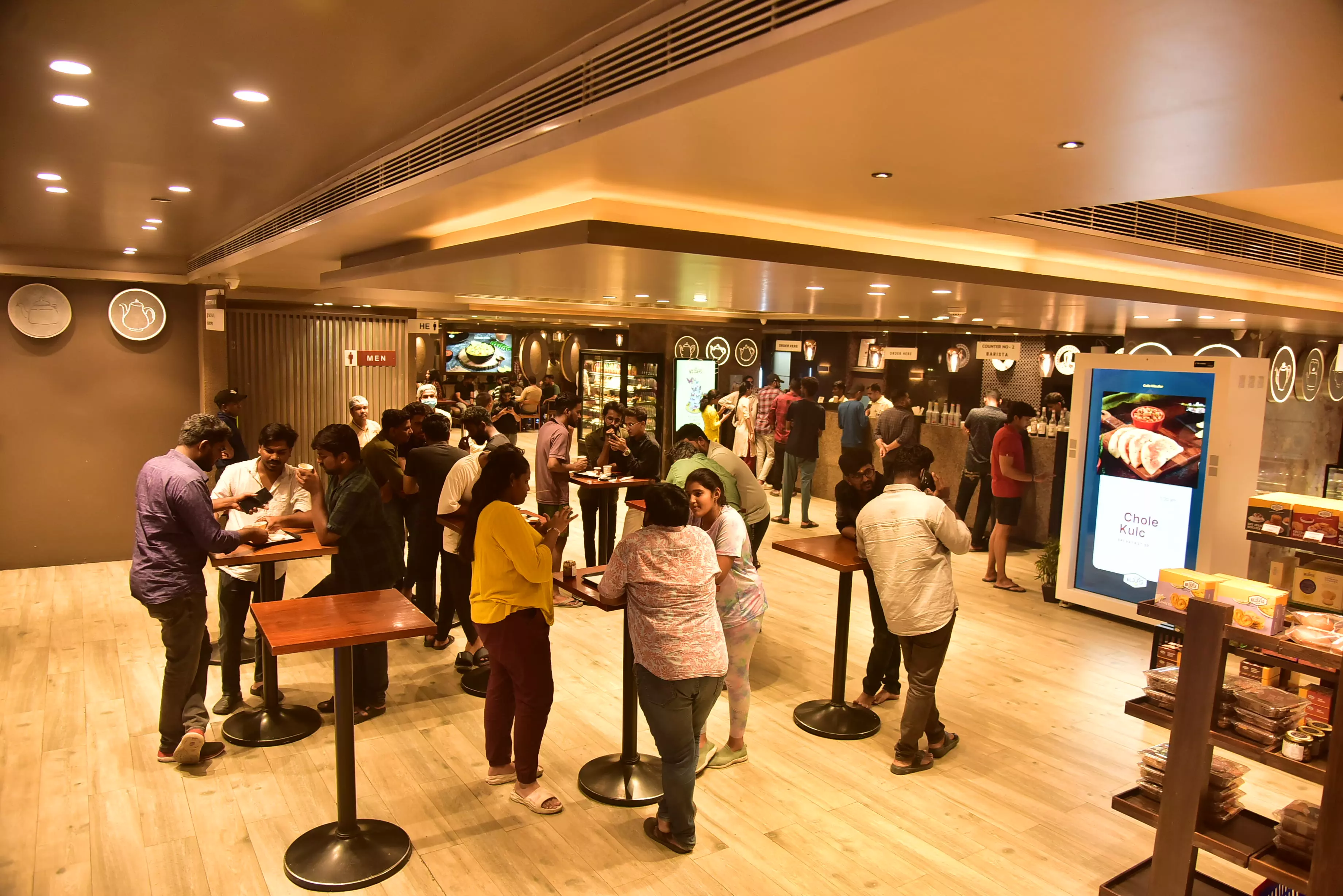Irani Cafes That Still Warm Up Hyderabad

If you ask a townie what defines an Irani café, chances are you’ll hear something sincerely personal, not just about chai or bun maska, but about time spent, people watched, lives observed. So when we asked both the custodians and the loyalists of Hyderabad’s beloved Irani cafes what single piece they’d rescue from time’s erosion — a stool, a story, a sip of chai — their answers unfolded like a memory-soaked blueprint of the city’s past.
Always the banter
Syed Ali Asghar Bolooki smiles at Café Bahar, where time blurs over shared tables. “It’s the banter — the comfort of familiar strangers.” He gestures to a corner table where familiar faces are already mid-discussion, cricket stats flying, political jabs thrown with affection. “We’ve been in the restaurant business for five decades. Our father personally trained us for over thirty years — not just in running a kitchen, but in respecting its soul.” Inspect the tea, choose the spices — the Bolooki brothers grew up knowing food was both art and inheritance. “His motto was simple,” he says.
“Best food, best service, best price”
Syed finds the soul of an Irani café in the quiet bonds strangers never talk about. “It’s not just food. It’s being seen, even in silence. It’s knowing you belong, no questions asked.”
He believes that once the talking stops, the spirit of the café falters. “You can replace furniture, but you can’t recreate chemistry. This is where people feel free to speak — loudly, and with feeling.”
The marble doesn’t die
At Sarvi, a café that’s kept its bearings amid the glass towers of Banjara Hills, owner Hyder Ali Mirza gestures to the gleaming surfaces of their age-old tables. “These marble tops are the quietest witnesses in the city,” he says. “They’ve seen generations pass. A young man comes here with his father; years later, he brings his child.” To Hyder, the weight and wear of the marble mean something. “It slows you down. You don’t rush chai when you sit at one of these. You look around. You stay. That stillness — that’s what I’d keep. Because modern life rushes at you. These tables ask you to linger.”
The soundtrack of chai
Affan Khan, a 30-something professional who finds refuge in Sarvi on busy weekday afternoons, says his most enduring memory is sonic. “It’s that clink — you know the one. When the glass cup touches the saucer, with that sharp note. It tells you chai has arrived, and with it, a small pause in your day.”
For him, it’s less about what’s served and more about how it’s served. “It’s not a sterile ‘order number 47.’ It’s that little sound, and sometimes a smile or a raised eyebrow from the server who’s seen you a hundred times but never asks your name. That’s home.”
Two versions of the same soul
Suparna Sachdeva, a homemaker from Sanathnagar and who visits Cafe Niloufer’s newer Banjara Hills branch, shares a more layered perspective. “Lakdikapul’s Niloufer,” she says, “has the old pulse. The waiters still shout orders, the fans hum lazily, and you feel like you’ve stepped into a different era. The bun maska melts slower there.”
In contrast, the Banjara Hills’ version, she notes, is sleeker — air-conditioned, quieter, more curated. “They cater to a different crowd — office-goers, younger couples. It’s functional, not emotional.” But if she had to save one thing? “The slowness of the old one. That unhurried feeling. It doesn’t force you to eat quickly and leave. It lets you just be.”
“It’s in the bun maska”
Sai Shivani, a regular at Café Bahar, is certain that the soul of the Irani cafe sits on a plate. “Bun maska,” she says with a grin. “You bite into it, and you’re seven years old again. Your mother is stirring chai beside you. The butter is thicker than it should be, and that’s exactly why it’s perfect.”
It’s about texture and memory. “It’s not gourmet. But it’s comforting. And honestly, no matter how many cafes open with their focaccia and feta, nothing touches bun maska with a side of nostalgia.”
A culture held together by the smallest things
The sense of belonging to something simple yet generous defines an Irani café. It’s not about trends or Instagram moments; it’s about familiar sounds, worn tables, thick bread, and easy connections. In a city rushing forward, these cafés stand their ground. Their survival doesn’t lie in reinvention, but in recognising their place as more than eateries — as quiet anchors in a fast-paced world. Hyder shares, “You can build a hundred cafes, but you can’t manufacture soul. That only comes from years of listening to your customers, to your walls, and to your city.”


